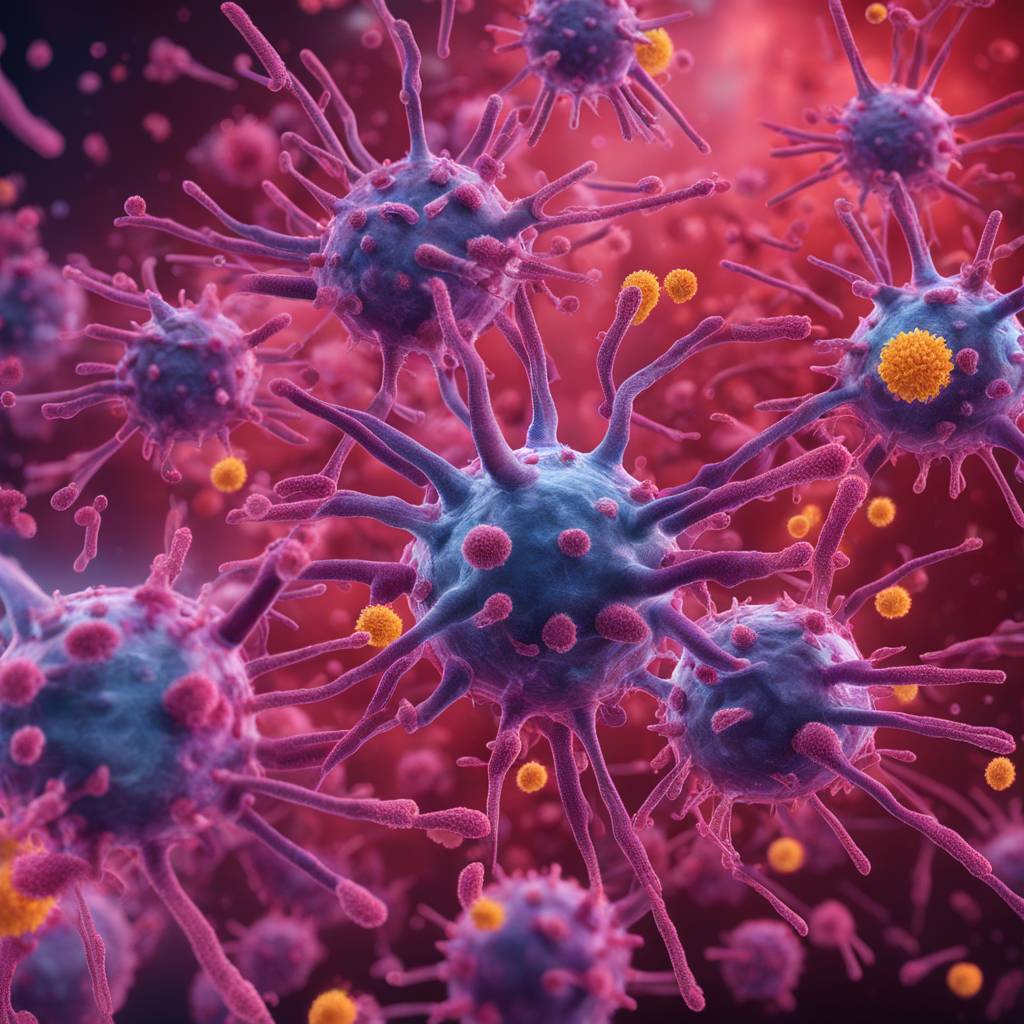Researchers at UVA Health have made a groundbreaking discovery regarding the potential role of antibodies acting as enzymes in patients with COVID-19 and long COVID. Led by Dr. Steven L. Zeichner, the team found that COVID-19 may trigger the production of antibodies that mimic the functions of certain enzymes in the body. These rogue antibodies, known as abzymes, could be responsible for some of the severe symptoms of COVID-19 and long COVID, offering a new avenue for treatment.
The Spike protein of the SARS-CoV-2 virus binds to a protein called ACE2 on cell surfaces, a crucial enzyme involved in blood pressure regulation. Zeichner’s team suspected that some patients might develop antibodies against the Spike protein that mimic ACE2, leading to enzymatic activity like ACE2. The researchers confirmed this hypothesis by identifying abzymes in the plasma of COVID-19 patients, suggesting that these antibodies could disrupt critical physiological functions, causing complications in COVID-19 patients.
In addition to affecting blood pressure regulation, the abzymes could also interfere with processes like blood clotting and inflammation, explaining some of the persistent symptoms in patients with long COVID. These findings shed light on the underlying mechanisms of long COVID symptoms and could also provide insights into rare side effects of COVID-19 vaccination. Understanding how abzymes function in COVID-19 patients is crucial for developing targeted therapies to address the root cause of the complications associated with the disease.
While the study is still in its early stages, previous research has shown that enzymatic antibodies are present in cases of HIV, indicating that viruses can induce abzyme formation. This discovery may have broader implications for understanding other viral infections and could pave the way for new treatments targeting abzymes in COVID-19 and other diseases. The research has been published in the scientific journal mBio, highlighting the significance of these findings in the field of medical research.
Moving forward, Zeichner and his team plan to investigate the role of abzymes in more detail by studying pure versions of enzymatic antibodies and examining patients who developed long COVID compared to those who did not. By gaining a deeper understanding of the disease mechanisms, researchers aim to develop more effective therapies for both acute COVID-19 and long COVID. The support from various sources, including UVA, the Manning Fund for COVID-19 Research, and the National Institutes of Health, has been instrumental in facilitating this groundbreaking research.
The discovery of abzymes in COVID-19 patients could revolutionize the way we approach the treatment of the disease and its long-term effects. By targeting these rogue antibodies, researchers hope to alleviate the symptoms of COVID-19 and long COVID at their source, offering new hope for patients battling the virus. The innovative research conducted at UVA Health underscores the importance of exploring novel pathways in understanding and combating complex diseases like COVID-19.













